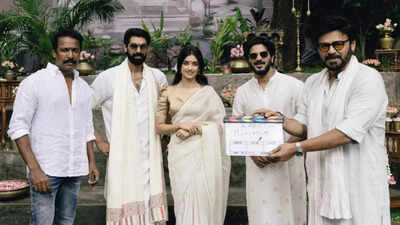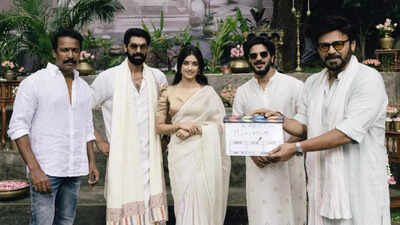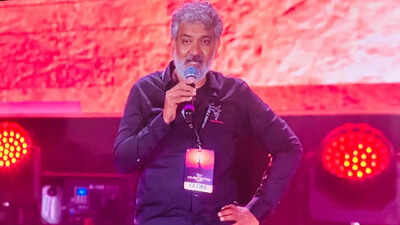Dulquer Salmaan and Kaantha director Selvamani Selvaraj grateful as film finds acceptance despite early controversies, ‘I was unsure how audiences would respond’ |

The bilingual period drama Kaantha, starring Dulquer Salmaan as T.K. Mahadevan, has finally arrived in cinemas. Released in Tamil and Telugu, the film is directed by Selvamani Selvaraj, best known for the documentary The Hunt for Veerappan. Set in 1950s Madras, the film has drawn significant attention due to speculation that it is inspired by the life of Tamil cinema legend Mayavaram Krishnasamy Thyagaraja Bhagavathar (MKT)—a claim the makers have consistently denied.
MKT family’s legal battle ahead of release
Before the film’s release, Bhagavathar’s family moved court, alleging that Kaantha portrayed the late superstar in a defamatory light without permission. They argued that though character names had been altered, audiences would still recognise real-life counterparts and that certain events had been inaccurately depicted. The court sought clarity from Dulquer Salmaan, who is both the film’s lead actor and its producer. The team, however, reiterated that Kaantha is not a biopic and bears no direct connection to Bhagavathar’s life.
Why rumours spread
The period setting, Dulquer’s character being addressed as ‘Nadippin Chakravarthi,’ and the old-world Tamil cinema aesthetic fuelled assumptions that the narrative mirrored Bhagavathar’s dramatic rise and fall. As promotional activities began, cinephiles revisited the superstar’s storied life, prompting many to watch the film to gauge similarities for themselves.
Dulquer Salmaan on the 11-hour narration that hooked him
In an interview with Mathrubhumi, Dulquer revealed that Selvamani Selvaraj narrated the story to him six years ago in an unexpectedly long session.“He came around 3 pm on a busy day. I had an event later and thought we’d finish by 6. But the narration stretched past 6, then 7. When I said I had to leave, he told me the interval was just 10 minutes away! It took five hours for half the story. We met again for six hours to finish the rest.Even during our 8–10 hour discussions before shooting, I was never bored or irritated. I always feared delays would halt the film—I desperately wanted to be part of it. Kaantha is very close to my heart.”
Director Selvamani Selvaraj on the film finally reaching audiences
Selvaraj said he is relieved and grateful that the film is being embraced despite early controversies.“At first, I was unsure how audiences would respond. But as scenes started coming together, I gained confidence in our story. I wrote it in 2016 and narrated it to Dulquer in 2019. I learnt cinema by watching films. When Dulquer said, ‘Don’t narrate this to anyone else—we must make this film,’ that gave me the courage to persevere.”
Inside Kaantha: Performance, storytelling and world-building
In Kaantha, Dulquer plays Thiruchengode Kalidas Mahadevan, an artist who rises from rural drama troupes to stardom. His powerful emotional performance anchors the film, which revolves around an intense clash of egos between a filmmaker and a superstar.Marking Wayfarer Films’ first non-Malayalam release, Kaantha recreates early Tamil cinema with rich period detail and atmospheric world-building.
A brief look at MKT’s extraordinary journey
Born on March 1, 1910, in Mayiladuthurai, Bhagavathar rose from devotional troupe performances to become Tamil cinema’s first true superstar. His debut Pavalakkodi (1934) featured an astonishing 56 songs, many sung and performed by him. Blockbusters like Chintamani, Ambikapathy, Thiruneelakantar and the iconic Haridas cemented his unprecedented stardom.At his peak, he was hailed as ‘Nadippin Chakravarthi’, ruling the stage and screen with unmatched popularity.But his career came crashing down when he was arrested in connection with the sensational Lakshmikanthan murder case. Though eventually acquitted after three years in prison, he struggled to reclaim his place in a fast-changing industry and died at 49. His haunting reflection—“There has been no one who rose as high as I did… and none who fell as far”—remains etched in Tamil cinema history.






